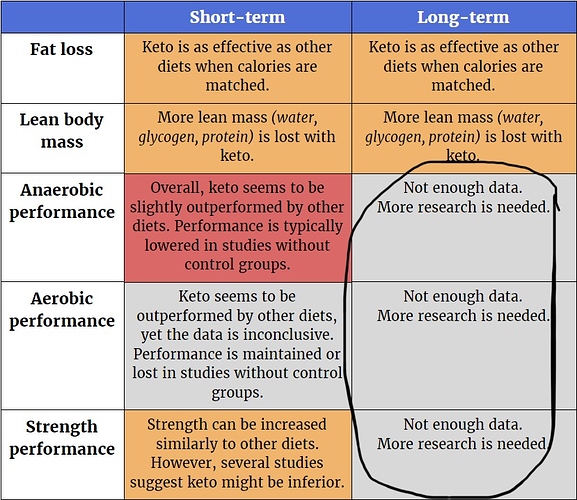110lbs down! HELL YA! 100mi a week is some serious riding, you need to understand you’re crossing into the athletic/performance realm. I bike myself, mostly MTB but also some trail rides and much of the advise you get is more of the mindset of weight loss and keto to manage disease. Not everybody, we’ve got some athletes and lifters here without question but most is the other side of stuff.
I can tell you that me 100lbs ago and me now are VERY different in almost every way when it comes to keto, my performance, how I run on fat vs before, protein tolerance, EVERYTHING!
When I was heavier I did the “standard” keto as most here do, If I ate too many carbs, I felt like crap, if my protein was too “high” I felt like crap, I’d stop loosing weight, I wouldn’t have energy, couldn’t perform in the gym etc. Got all the standard advise, eat more(I was eating plenty), eat more fat (that almost wasn’t possible), more salt (never had issues there as I’m a salt freak). Ultimately nothing worked and I plateaued for a long time. So given the changes I started reading what some of the “performance” people doing keto were doing and it seemed they ran by a slightly different set of rules. The first thing was they watched calories, whether it was to loose weight or put it on, they went by them. That was insane to me, but so was 6+mo if a stall both in weight loss and muscle gain. So I had my RMR tested, realized it was TRASHED and started counting them and adjusting the accordingly. Within 2 weeks I started loosing weight again… and it continued. Next thing was muscle gain stalls, most on the other side don’t fear protein like many keto’rs do. I played with protein before and too much always made me feel bad but I was a lot lighter and more active now so I cranked it up to 150g/day… and I felt better! Then 175, and now it’s around 200g/day and my gym performance is better is noticeable muscle response from it both on the weights and visually. Last step was (now people will get pissed) adding in some good carbs around heavy workouts… NIGHT AND DAY difference! When I’d read other people doing long biking sessions and bonking I though they must be doing something wrong because I could ride FOREVER on my fat stores… Not any more! I need some faster burning fuel. We know as we adapt the body because very “efficient” at fuel conservation over time which is the thought on why us long timers have lower ketones. Well, when I’m in the gym or on my bike I don’t want to be a fuel sipping Prius, I want to be a gas guzzling Dragster! That’s where the speed and performance comes from. I had to come to the realization that some fuel sources are just better at certain things. I feel I’ve achieved true metabolic flexibility at this point and truly think that’s the best place to be. I can run on fat and feel fine, I can run on carbs and not have hangovers after. I can even have (bad) carb cheat meal and NOTHING happens. I can then go from that cheat meal to a fast the next day without issue. Being able to seamlessly switch between fuel sources should be the goal. THAT is efficiency. “Real” cyclists and runners are often into glucose goo gels for the hard rides, I’ve never used those but I do intentionally spike myself with glucose post workout as we’re insulin sensitive after them and have noticed massive results since doing that, doesn’t seem to have any negative effects overall with either weight loss or ketones (while I was checking) so may be something to look into.



